Napster’s first shutdown in July 2001 marked the end of a brief but transformative chapter in the history of the internet and the music industry. The file-sharing service, which had ignited a digital revolution by enabling millions of users to share music files for free, was forced offline by a court order after a series of legal battles with the Recording Industry Association of America (RIAA). This event not only signaled the downfall of one of the internet's first major peer-to-peer (P2P) platforms but also highlighted the emerging tensions between traditional media industries and the new digital landscape.
The Birth of Napster
Napster was the brainchild of Shawn Fanning, a 19-year-old college student with a passion for programming and a love for music. In 1999, frustrated by the difficulties of finding and sharing music online, Fanning developed a program that allowed users to share MP3 files directly with one another, bypassing the need for centralized servers. This peer-to-peer (P2P) model was revolutionary at the time, making it easy for users to upload and download music files from each other’s computers.
Fanning launched Napster in June 1999 with the help of his friend Sean Parker, who played a key role in bringing the service to the masses. Napster quickly exploded in popularity. By early 2000, it had tens of millions of users, many of them college students who suddenly had access to a virtually limitless library of free music.
The Legal Battles Begin
Napster’s rapid rise didn’t go unnoticed by the music industry. While users celebrated the newfound access to music, the Recording Industry Association of America (RIAA) and major record labels saw Napster as a direct threat to their business model. CD sales, which had been the primary revenue source for the music industry, began to decline as more and more people turned to Napster to get their music for free.
In December 1999, just six months after Napster launched, the RIAA filed a lawsuit against the company, accusing it of facilitating massive copyright infringement. The lawsuit argued that Napster was responsible for the illegal sharing of copyrighted material and demanded that the service be shut down.
Napster, for its part, argued that it was merely a platform, not directly involved in the distribution of copyrighted material, and that it was the users who were responsible for any copyright infringement. This defense was reminiscent of the "safe harbor" provisions later established by laws like the Digital Millennium Copyright Act (DMCA), which protect online platforms from liability for user-generated content—although Napster’s case was much more complex since its sole purpose was the sharing of music files.
The Court’s Ruling and Shutdown
The legal battle between Napster and the RIAA dragged on for more than a year, drawing widespread attention and setting the stage for future conflicts between traditional media industries and emerging digital platforms. In March 2000, U.S. District Judge Marilyn Hall Patel issued a preliminary injunction against Napster, ordering it to stop distributing copyrighted music. However, the injunction was stayed pending an appeal, allowing Napster to continue operating.
Finally, in July 2001, after a series of appeals and rulings, the U.S. Court of Appeals for the Ninth Circuit upheld the injunction, effectively ordering Napster to cease its operations. On July 11, 2001, Napster shut down its servers, marking the end of an era for the service that had revolutionized the way people accessed and shared music.
The Aftermath and Legacy
Napster’s shutdown was a significant victory for the music industry, but it also highlighted the limitations of traditional legal approaches in the face of rapidly evolving technology. While Napster was forced offline, the demand for digital music sharing had been firmly established, and numerous other P2P services quickly sprang up to fill the void, including Kazaa, LimeWire, and eMule. These platforms were often more decentralized and harder to shut down, making it clear that the genie was out of the bottle.
Napster itself didn’t disappear entirely. The company attempted to relaunch as a legal, subscription-based service, but it struggled to compete with the rise of iTunes and other digital music platforms. In 2002, Napster filed for bankruptcy and was eventually acquired by various companies, with its brand and legacy living on in different forms over the years.
The Napster saga had a profound impact on the music industry. It forced record labels to rethink their approach to digital distribution, eventually leading to the rise of legal download services like iTunes and, later, streaming platforms like Spotify. These services finally offered consumers a convenient and legal way to access music online, something that Napster had shown there was a huge demand for.
A Pivotal Moment in Internet History
Napster’s first shutdown in 2001 is often seen as a pivotal moment in internet history—a clash between old media and new technology that set the stage for the digital revolution that would follow. It was a time when the internet was still finding its identity, and the implications of digital sharing were just beginning to be understood.
For millions of users, Napster was more than just a music-sharing platform; it was a symbol of the internet’s potential to democratize access to media and challenge established industries. While its legal battles and eventual shutdown underscored the complexities and challenges of this new digital frontier, Napster’s influence is still felt today, in the way we discover, share, and consume music in a digital world.

